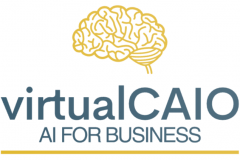In the rapidly evolving world of language models and machine learning, terminology plays a pivotal role in shaping our understanding and approach to new technologies. Two phrases that have recently gained traction are “prompt library” and “prompt database.” While they may seem interchangeable to the uninitiated, each carries its own nuances and implications. Let’s delve into the merits of each term and offer a couple of unconventional perspectives on their usage.
Prompt Library: A Curated Collection
- Nuanced Interpretation: The term “library” often evokes images of vast collections of books, meticulously organized and curated for specific audiences. Similarly, a “prompt library” suggests a carefully selected collection of prompts, tailored to elicit specific responses or behaviors from a language model. It implies a sense of curation and intentionality.
- Flexibility and Adaptability: Just as a library can house various genres and formats, a “prompt library” can encompass a diverse range of prompts, from simple queries to complex instructions. This flexibility allows developers and researchers to adapt and expand their library as the model evolves.
- Unusual Take: Consider the concept of a “librarian” for prompts. In a world where the number of prompts grows exponentially, there might be a unique role for “prompt librarians” who curate, categorize, and recommend prompts, much like book recommendations in a traditional library.
Prompt Database: A Structured Repository
- Systematic Organization: The term “database” brings to mind structured, organized, and easily searchable data. A “prompt database” suggests a more systematic approach to storing and retrieving prompts, making it invaluable for large-scale operations or research.
- Scalability and Efficiency: Databases are designed to handle vast amounts of data efficiently. As such, a “prompt database” can be scaled to accommodate the growing number of prompts, ensuring quick retrieval and efficient storage.
- Unusual Take: Imagine a world where prompts become a form of currency, traded and valued based on their effectiveness and uniqueness. In such a scenario, a “prompt database” could function as a “prompt exchange,” where developers and researchers trade and invest in high-value prompts.
Conclusion
While “prompt library” and “prompt database” may seem synonymous, their subtle differences reflect the diverse needs and approaches of the machine learning community. Whether you lean towards the curated nature of a library or the structured efficiency of a database, both terms offer valuable perspectives on the evolving landscape of language models and their interactions. As we continue to explore the potential of LLMs, it’s essential to choose our terminology thoughtfully, recognizing the power of words to shape our understanding and future innovations.
